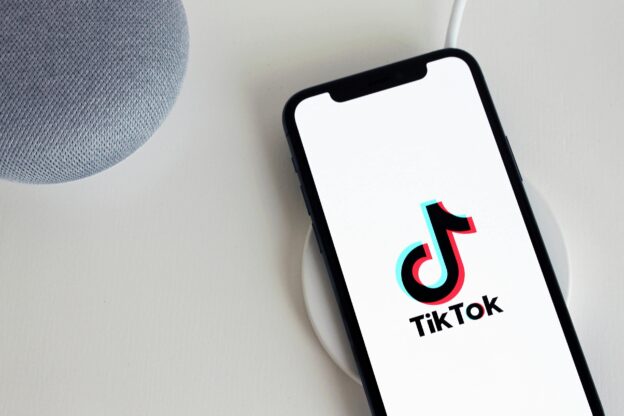Cameron Weiss – TikTok, the popular social media platform with over a billion users worldwide, has become a cultural and economic phenomenon. Known for its algorithm-driven “For You” page, TikTok is used by millions of Americans for entertainment, business, and even news consumption. A staggering 43% of U.S. users regularly get their news from TikTok, demonstrating its influence. However, TikTok’s alleged ties to China have sparked national security concerns in the United States, leading to a series of legal and legislative battles.
On December 6, 2024, the U.S. Court of Appeals in Washington, D.C., upheld a law requiring TikTok’s Chinese parent company, ByteDance, to divest its U.S. operations or face a nationwide ban. The decision, framed as a response to security risks, has prompted TikTok to appeal to the Supreme Court. The case raises critical questions about the balance between national security, free speech, and the regulation of foreign-owned technology companies.
The legislative push began with the passage of the Protecting Americans from Foreign Adversary Controlled Applications Act, signed into law by President Biden in April 2024. The law allows the government to limit or prohibit technology from foreign adversaries deemed to pose security risks. The government argues that TikTok’s ties to ByteDance create vulnerabilities that could allow Chinese authorities to access user data or influence public opinion through the app.
In response, TikTok and its users have challenged the law, asserting that it violates First Amendment rights. They argue that TikTok serves as a platform for free expression, economic opportunity, and cultural exchange. Additionally, TikTok contends that the Act violates the Fifth Amendment’s guarantee of equal protection, constitutes an unlawful bill of attainder, and results in an uncompensated taking of private property in violation of the Fifth Amendment. Finally, TikTok also argues that the government has not provided sufficient evidence of its security risks.
The D.C. Circuit’s decision to uphold the law reflects the weight of national security concerns. The court noted that the government provided classified evidence detailing potential risks associated with TikTok’s operations, though much of this evidence remains sealed. The ruling also discussed the judiciary’s deference to the executive branch in national security matters.
TikTok appealed to the Supreme Court, arguing that the ban is overly broad and overlooks less restrictive alternatives. TikTok proposed several measures to address national security concerns, such as data anonymization, third-party oversight by Oracle for source code review, increased transparency and reporting, and limiting data collection. However, the government rejected these proposals due to concerns about insufficient data protections, inadequate operational independence, and the risk of continued Chinese government influence. TikTok denied these allegations of Chinese government influence over its algorithms or operations. After considering these arguments, the Supreme Court unanimously upheld the federal law requiring TikTok to cease operations in the United States unless its Chinese parent company sells it to a U.S. entity by January 19, 2025. The Court acknowledged that TikTok serves as a “distinct and expansive outlet for expression, means of engagement, and source of community” for over 170 million Americans. However, it concluded that Congress’s decision to mandate divestiture is justified by well-supported national security concerns over TikTok’s data collection practices and ties to a foreign adversary.
Meanwhile, similar restrictions are emerging at the state level. For instance, Florida recently enacted a law banning social media accounts for children under 14, reflecting growing concerns about the impact of digital platforms on mental health.
On January 18, U.S. TikTok users could not access the app as usual, instead encountering a message announcing its ban. The message stated that President Trump would work to reinstate the app once he took office, leaving users with no option but to close the app. Later, Trump assured users on Truth Social, another social media platform, that he would extend the deadline for the ban. TikTok interpreted this as confirmation that service providers would not face penalties for offering the app. As a result, just twelve hours after the ban, TikTok was “unbanned.”
After Trump’s inauguration, he signed an executive order delaying the TikTok ban for seventy five days. Trump proposed a joint venture where the U.S. would own a 50% stake in TikTok, allowing ByteDance, TikTok’s Chinese parent company, to remain involved. However, this proposed 50-50 joint venture faces significant legal challenges, particularly regarding its compliance with U.S. national security laws. Experts argue that such a partnership would not fully sever TikTok’s operational ties with its Chinese parent company, ByteDance, as required by the Protecting Americans from Foreign Adversary Controlled Applications Act. Furthermore, constitutional law experts contend that as long as foreign adversaries maintain “significant control” over TikTok’s data or algorithms, the app would still need to be banned in the United States unless a complete divestiture to an American company occurs. Trump warned China against blocking any deal he made, calling it an act of “hostility” and threatening tariffs of up to 100%.
TikTok v. Garland demonstrates the complex interplay between technology, law, and policy. For businesses, the Supreme Court’s decision signals heightened scrutiny of foreign-owned platforms, especially those with operations in countries with adversarial relationships with the U.S. However, the case also raises critical unresolved legal questions, particularly about the future of such bans and whether they will face more rigorous judicial scrutiny. As national security concerns continue to shape the regulatory landscape, courts may be asked to balance these concerns against constitutional protections more carefully in future cases.
The TikTok ban and its legal battles have broad implications, not only for TikTok but also for the tech industry. As governments worldwide increasingly assert control over digital platforms, businesses must stay alert to changes in regulations, particularly concerning cross-border transactions, data privacy laws, and the ownership of foreign tech companies. In a time where technology transcends borders, finding the right balance between security, innovation, and individual rights will remain a central challenge for policymakers and courts.


